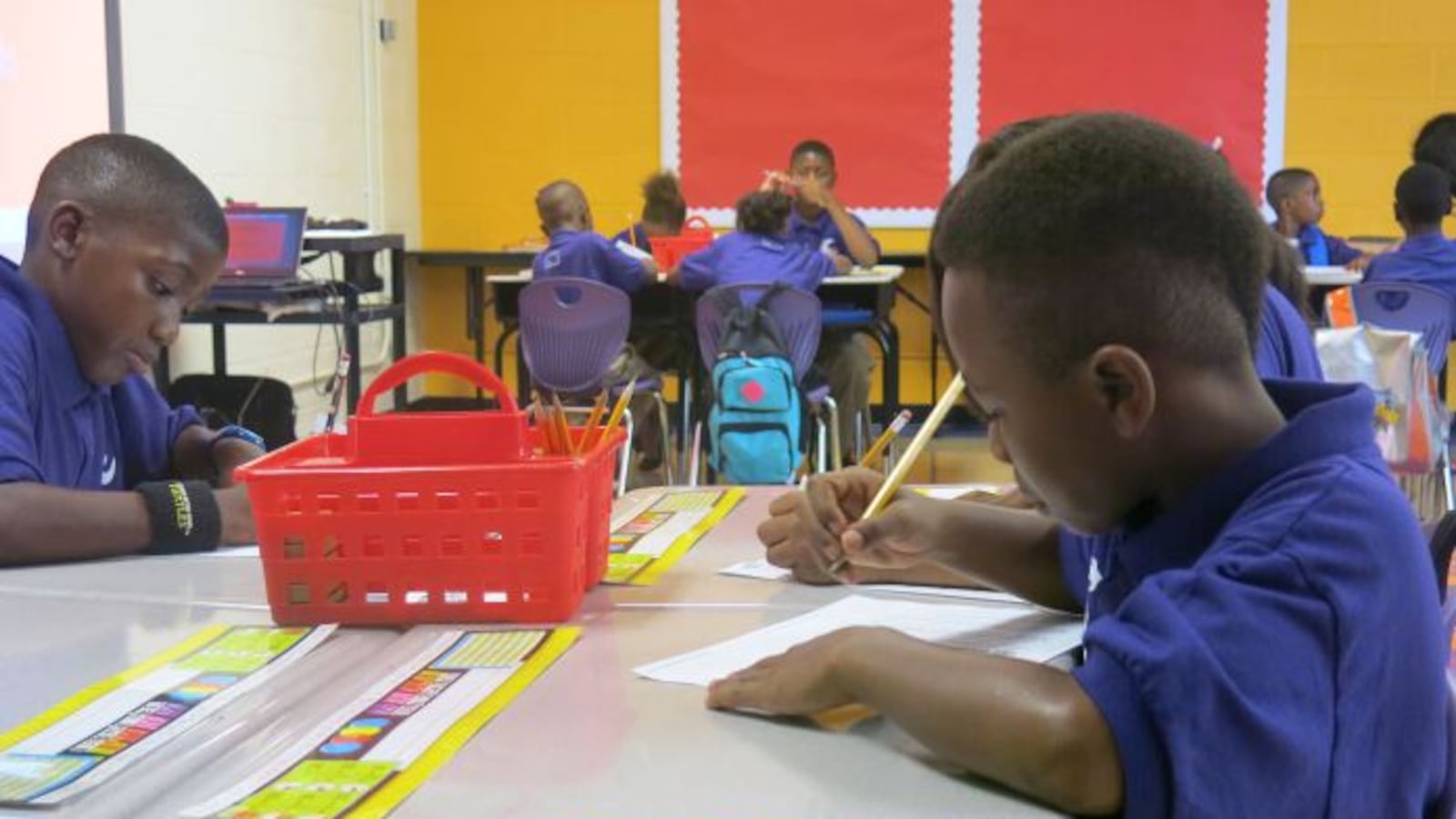A state group that oversees some New York charter schools has revised a hotly contested proposal to let its schools certify their own teachers ahead of Wednesday’s vote, according to an updated proposal.
Though the basic elements of the original proposal remains in tact, prospective teachers will now be required to sit for significantly more hours of instruction (though the amount of time they must spend practice teaching has been reduced), and they now must pass one of the exams used in the traditional certification process or an equivalent test.
“We appreciated all of the comments we received and we made significant changes based on those comments,” Joseph Belluck, the head of SUNY’s charter school committee, which will vote on the proposal next week. “We feel like we now have a proposed set of regulations that accomplish our goal of putting highly qualified teachers in our charter schools.”
SUNY, the charter authorizer that created the proposal, is attempting to beef up the certification rules following intense pushback by a host of critics, including the state education department and teachers unions.
Critics think the proposal is “insulting” to the teaching profession and will flood classrooms with unqualified teachers, while SUNY officials say the proposal is necessary to fill hiring gaps at charter schools.
The original proposal required prospective teachers to sit for 30 hours of instruction and then practice 100 hours of teaching under the supervision of an experienced teacher, far less than the requirements for a traditional school teacher.
The limited training came under attack, even drawing uncharacteristic ire from State Education Commissioner MaryEllen Elia, who said, “I could go into a fast food restaurant and get more training than that.”
In the revised proposal, prospective teachers will be required to sit for 160 hours of classroom instruction, which amounts to about a month of full-time work. However, the time required for teaching practice will drop from 100 to 40 hours.
Belluck said the changes were made to align with already existing alternative certification paths that allow some prospective teachers to circumvent traditional requirements. Though the hours of field experience and instruction in SUNY’s proposal mirror an existing alternative route, the proposal does not have all the same requirements. For instance, SUNY’s plan does require aspiring teachers to be enrolled in a college’s teacher education program.
The new regulations ask prospective teachers to take the Educating All Students test, an exam designed to test strategies for teaching students with special needs, including English learners and students with disabilities. (If prospective teachers don’t take that exam, they must take a different one approved by SUNY that has “all required elements” of the test.)
Prospective teachers in New York are typically required to take three certification exams, including a content test and the controversial edTPA, which requires a portfolio of work.
Critics of the traditional teacher certification process say it is out of touch with the real-life demands of teaching and unnecessarily weeds out prospective teachers. Across the country, teacher certification requirements also disproportionately shut out black and Hispanic prospective teachers, a Chalkbeat analysis found.
Several charter school operators think they can put together a better system that focuses on the practical aspects of teaching. But whether this proposal gives them too much leeway to make their own rules is likely to be debated.
In the original proposal, the teacher certification would only count at SUNY-authorized charter schools, meaning teachers would not be able to switch to district schools and even some other charter schools without additional training. Some warned this would create “two tiers of certification,” trapping teachers in certain charter schools.
The new proposal is still only valid at SUNY-authorized schools, but Belluck hopes that it will be easier for teachers who are certified this way to gain full state certification since the new regulations are more closely aligned with the state’s certification process.
The draft revisions also allow charter schools to contract with higher education institutions to create their training programs and require schools to explain their need for an alternative certification path. (Currently, only 15 uncertified teachers are allowed in a given charter school.) It also stipulates that charter schools must meet certain academic benchmarks before they can apply to train their own teachers.
SUNY’s charter school committee is expected to vote on the revised proposal at their meeting on Wednesday.

